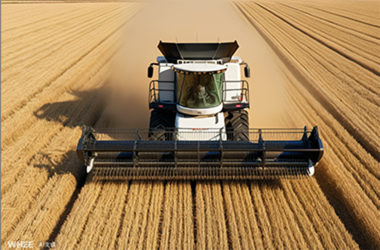Innovative Solutions for Construction Equipment and Materials Manufacturing
The Evolution and Importance of Building Material Machinery
In the rapidly advancing world of construction and infrastructure development, the significance of building material machinery cannot be overstated. These machines form the backbone of constructing everything from residential homes to skyscrapers and bridges. As the demand for high-quality, efficient construction techniques increases, the machinery used to produce and manipulate building materials is evolving in exciting ways.
The Types of Building Material Machinery
Building material machinery encompasses a wide range of equipment essential in the production and handling of materials. Some of the most common types include
1. Concrete Equipment This category includes mixers, pumps, and batch plants that facilitate the efficient mixing and delivery of concrete, a fundamental building material. Innovations in this area, such as mobile concrete mixers and automated batching systems, allow for precise measurements and faster construction times.
2. Masonry Equipment Brick and block making machines have revolutionized the production of masonry materials. Automatic and semi-automatic models provide consistent quality and can produce large quantities in a short time, catering to the demands of large-scale construction projects.
3. Woodworking Machinery From saws to CNC routers, this machinery is essential in processing timber into usable building materials. The integration of technology into woodworking machines has improved precision and reduced waste, making them more environmentally friendly.
4. Crushing and Screening Equipment These machines are critical for processing aggregates, which are used in concrete and road construction. By crushing and screening materials, builders can ensure they have the right size and quality for their projects.
5. Finishing Machines Once the basic building materials are created, finishing machines such as polishers and grinders ensure these materials meet the required aesthetic and functional standards. This equipment plays a vital role in the overall appearance and quality of construction projects.
building material machinery

Technological Advancements
The construction industry has embraced technology to enhance productivity and efficiency in the use of building material machinery. Automation and robotics are increasingly being integrated into construction processes. Automated machinery reduces labor costs, minimizes human error, and increases output.
Furthermore, the introduction of smart technologies, such as IoT (Internet of Things), allows for real-time monitoring and maintenance of equipment. This capability helps in predictive maintenance, reducing downtime, and improving overall efficiency.
Eco-friendly innovations are also at the forefront of the machinery landscape. Many companies are developing machinery that uses sustainable technologies or alternative energies, aligning with the global shift towards more sustainable building practices. These advancements not only help reduce the carbon footprint of construction but also appeal to a growing client base that prioritizes sustainability.
The Role of Skilled Operators
While machinery is crucial, the role of skilled operators in ensuring the efficiency and safety of these machines cannot be overlooked. As machinery becomes more advanced, the need for trained personnel who can operate and maintain this equipment effectively becomes essential. Continuous training programs and certifications are pivotal in building a competent workforce capable of leveraging the full potential of modern building material machinery.
Conclusion
Building material machinery plays an integral role in the construction industry, influencing efficiency, quality, and sustainability. As technology continues to evolve, so too will the tools and machinery available to builders. Embracing these innovations not only enhances construction capabilities but also contributes to a future where building projects can be executed more responsibly and effectively. As the industry moves forward, the synergy between cutting-edge technology, skilled labor, and sustainable practices will define the future of building material machinery and the construction landscape as a whole.
-
SINOTRUK HOWO 84 Electric Dump Truck for Eco-Friendly Heavy HaulingNewsJul.26,2025
-
The Fast 16-Gear Manual Transmission Assembly for Heavy TrucksNewsJul.25,2025
-
Mercedes Benz Actros 1848 42 Tractor Truck for Sale - Reliable PerformanceNewsJul.24,2025
-
High-Quality Water Pump Assembly for Sinotruk Trucks – Durable & ReliableNewsJul.23,2025
-
Premium Truck Engine Antifreeze Coolant Fluid for Heavy Duty VehiclesNewsJul.22,2025
-
FOTON View G7 Mini Bus: Affordable & Spacious TransportNewsJul.22,2025
Popular products

























